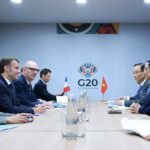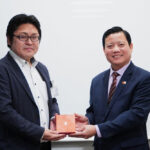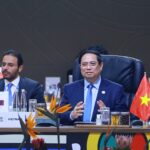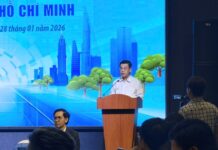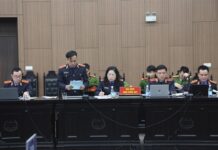On the morning of November 22nd, in Johannesburg, South Africa’s President and Chair of the G20 for 2025, presided over the welcoming ceremony for high-level leaders and heads of delegations from various countries and international organizations, officially opening the 2025 G20 Summit.
The summit, held from November 22nd to 23rd, was attended by high-ranking officials from G20 member countries, 20 guest nations, and 21 leaders of international and regional organizations.
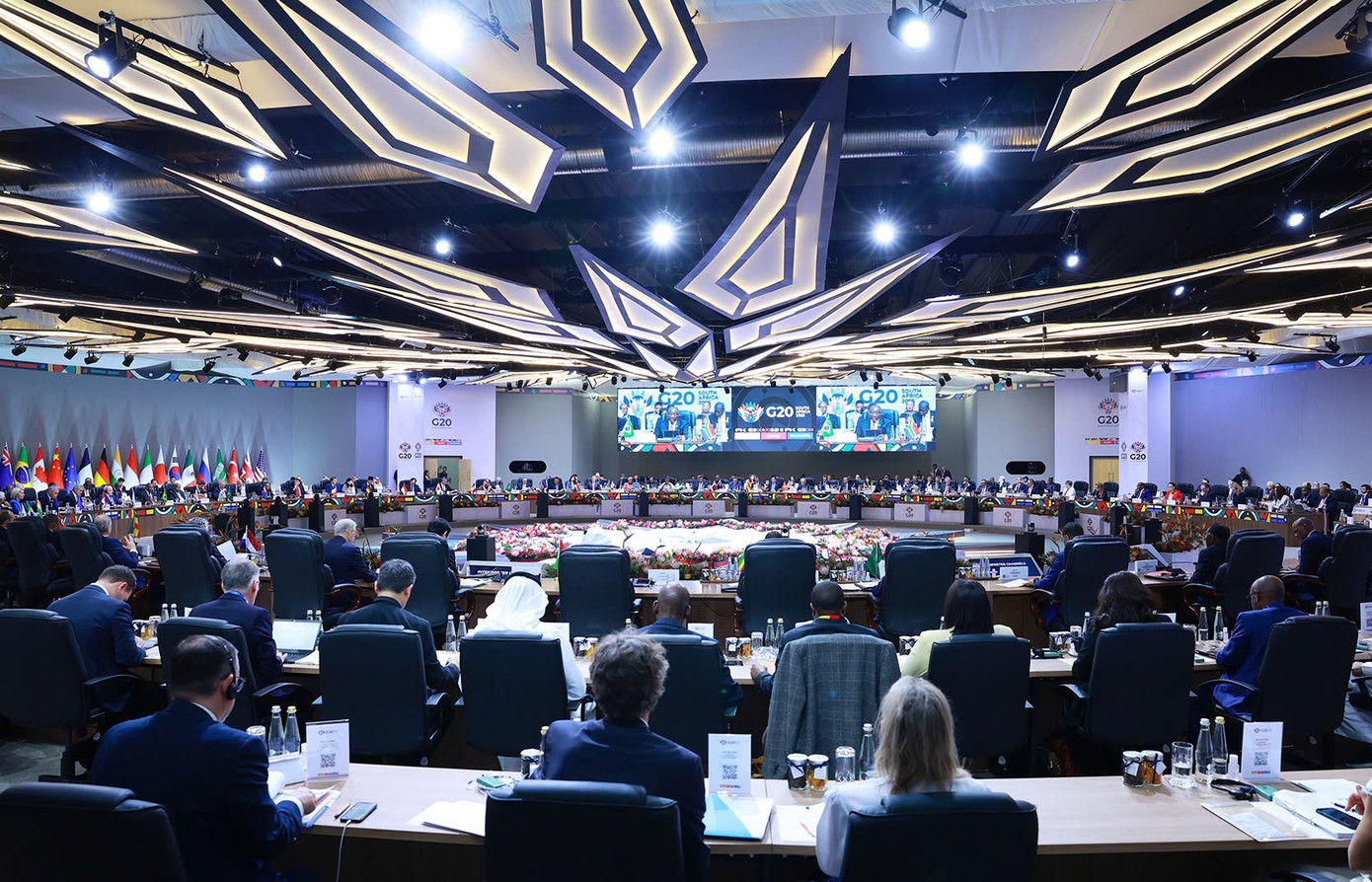
Full view of the summit. Photo: VGP
During the first day of proceedings, Prime Minister Pham Minh Chinh and other leaders participated in two critical discussion sessions themed: “Sustainable and Inclusive Economic Development – Leaving No One Behind” and “G20 Contributions to a Resilient World.”
Leaders engaged in in-depth discussions and agreed on key directives regarding economic development, the role of trade and finance in development, debt management, disaster risk reduction, climate change mitigation, equitable energy transition, and food security.
Leaders shared the view that the global economy faces numerous risks and uncertainties, evident in global macroeconomic imbalances, rising trade protectionism, escalating public debt, and shrinking access to capital. These challenges, coupled with slowing growth and prolonged geopolitical tensions, negatively impact nations’ development prospects.
In this context, leaders emphasized the need for enhanced coordination in fiscal, monetary, and trade policies to address macroeconomic imbalances and inequalities, bolster market confidence, foster regional connectivity, and mobilize investment resources. These efforts aim to ensure macroeconomic stability and promote inclusive, sustainable global growth.
Leaders affirmed that international trade remains a vital driver of growth, advocating for the strengthening of the multilateral trading system, WTO reforms, and support for small and medium-sized enterprises to integrate deeper into global value chains.
Leaders also called for accelerating reforms in the international financial system, enhancing debt transparency and sustainability, and effectively implementing debt management mechanisms like the G20 Common Framework. They emphasized the role of multilateral development banks in mobilizing resources for infrastructure, energy transition, and sustainable development goals.
The summit underscored the urgent need to enhance resilience against natural disasters and climate change, given the increasing risks and their significant impact on livelihoods, economic activities, and sustainable development efforts.
Leaders agreed to strengthen international cooperation in disaster risk management, establish early warning systems, develop high-quality infrastructure, and ensure water, food, and health security. They also committed to mobilizing resources for green energy transitions and sustainable agriculture.
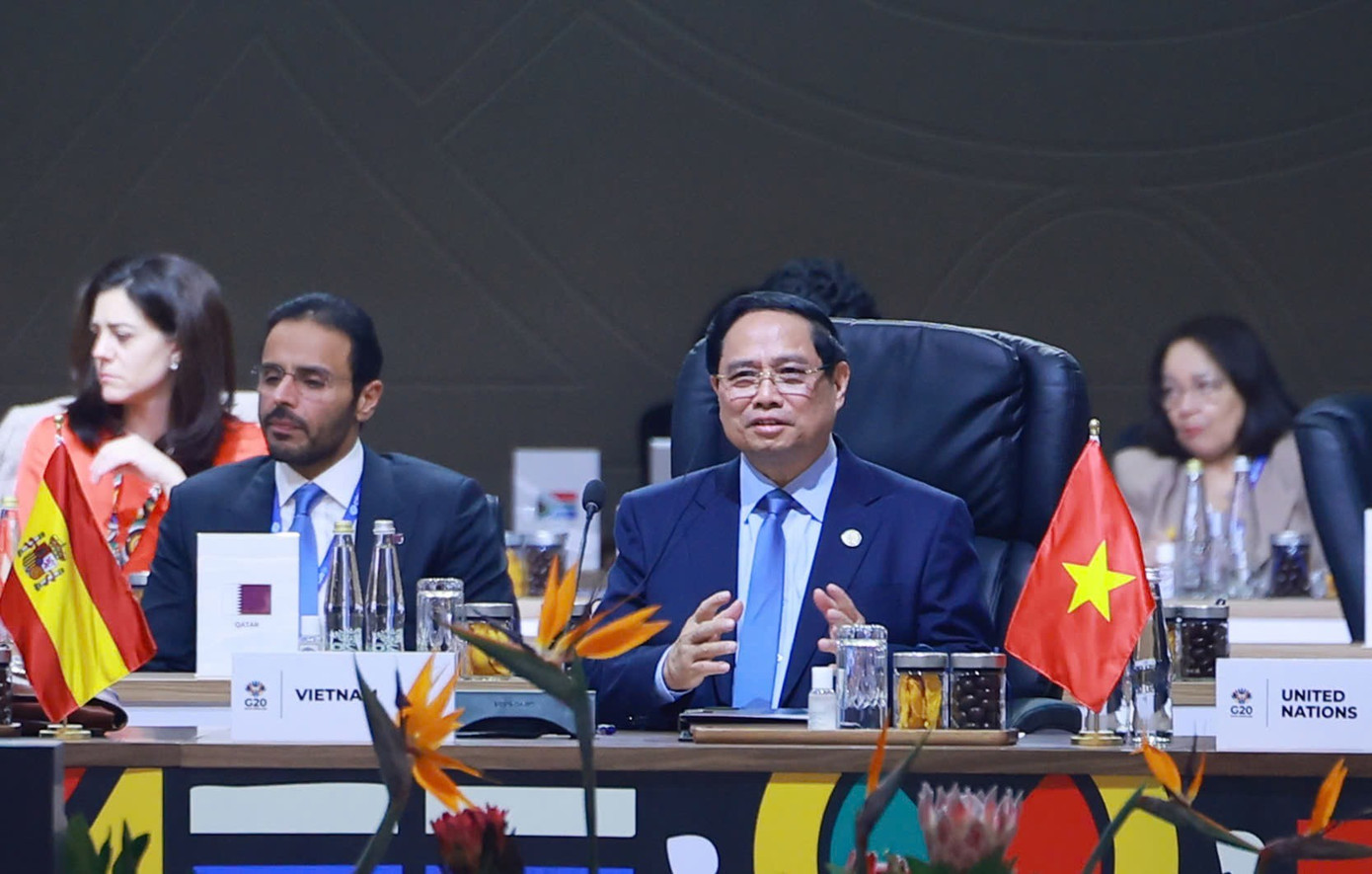
Prime Minister Pham Minh Chinh addressing the summit. Photo: VGP
Ensuring Stability for Development
In his address, Prime Minister Pham Minh Chinh observed that the world is undergoing profound, era-defining changes, with many unprecedented, global, and comprehensive challenges. In this context, global governance should focus on: maintaining peace, stability, and inclusive development as its core objective; upholding equality, mutual benefit, international law, and cooperation as its guiding principles; and adopting a people-centered, comprehensive, and global approach.
Under the motto “Unity for Strength – Cooperation for Benefits – Dialogue for Trust,” the Prime Minister proposed three strategic guarantees to promote inclusive and sustainable growth, ensuring no one is left behind:
First, ensuring stability in international relations, global politics, and macroeconomic conditions. The Prime Minister urged the G20 to lead in establishing mutual respect-based international cooperation mechanisms, resolving conflicts, and creating a conducive environment for development. This includes coordinating policies to prevent systemic risks, manage crises, reduce trade barriers, minimize supply chain fragmentation, and promote debt restructuring initiatives for global macroeconomic stability.
Second, ensuring a rules-based multilateral trading system with the WTO at its core, a balanced and transparent global financial system, and equitable access to science, technology, and development finance.
The Prime Minister called on the G20 to enhance cooperation, oppose the politicization of science and trade, and support developing countries through fair trade policies, harmonized interests, and an effective financial system. He also advocated for comprehensive WTO reforms to enhance its effectiveness and responsiveness to rapid, sustainable development needs.
The Prime Minister affirmed Vietnam’s readiness to cooperate actively, equitably, and mutually beneficially with all nations, the G20, and the international community for a peaceful, civilized, prosperous, and sustainably developed world, ensuring no one is left behind. He emphasized that all citizens should benefit from the fruits of development and effective international integration.
Honda Subsidiary Plans to Invest in Building a Racing Circuit in Vietnam
Honda Mobilityland has unveiled plans to construct an International Raceway in Tay Ninh Province. The project is poised to become a premier sports and entertainment hub in the region, mirroring the success of the Suzuka Circuit in Japan.


